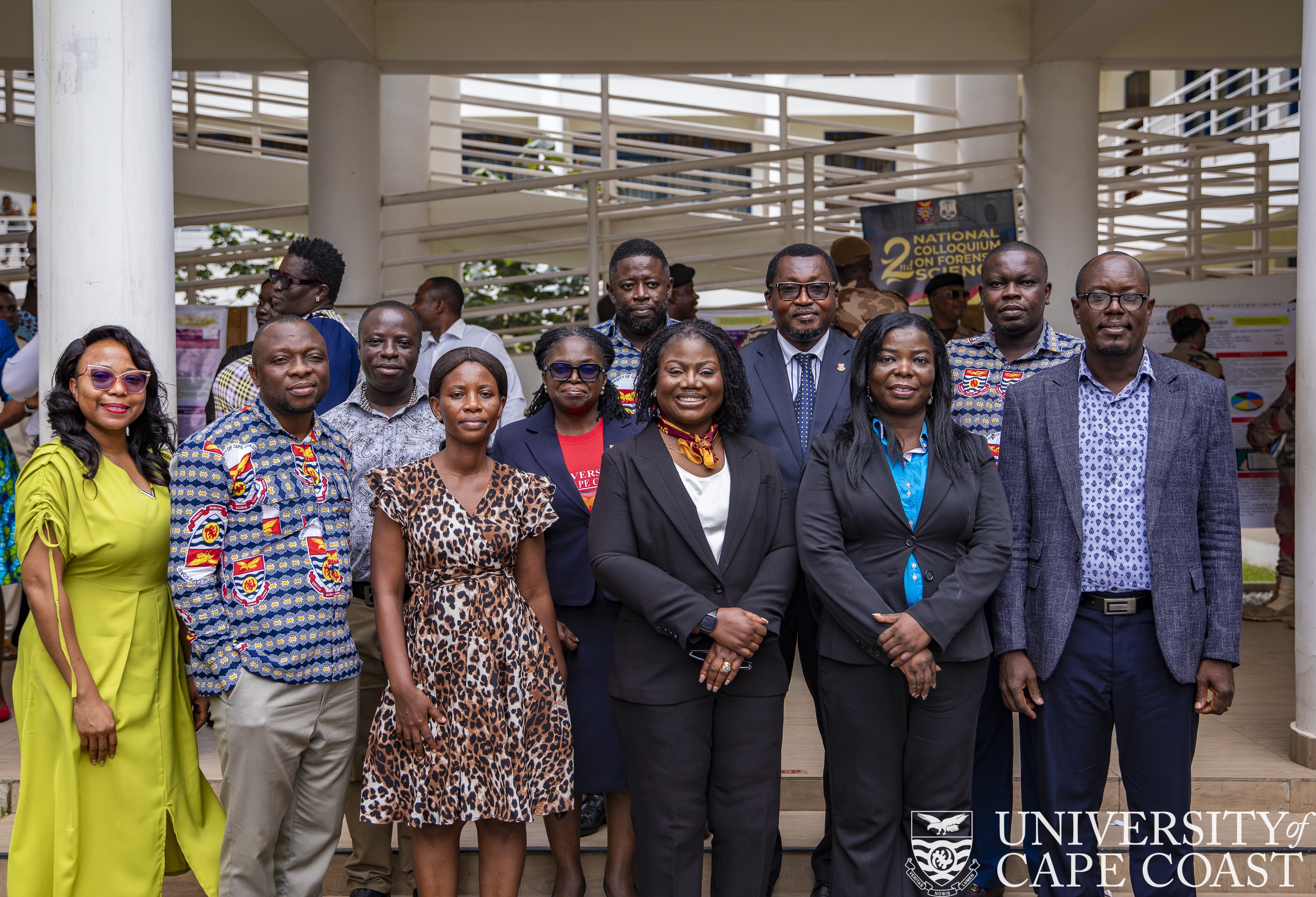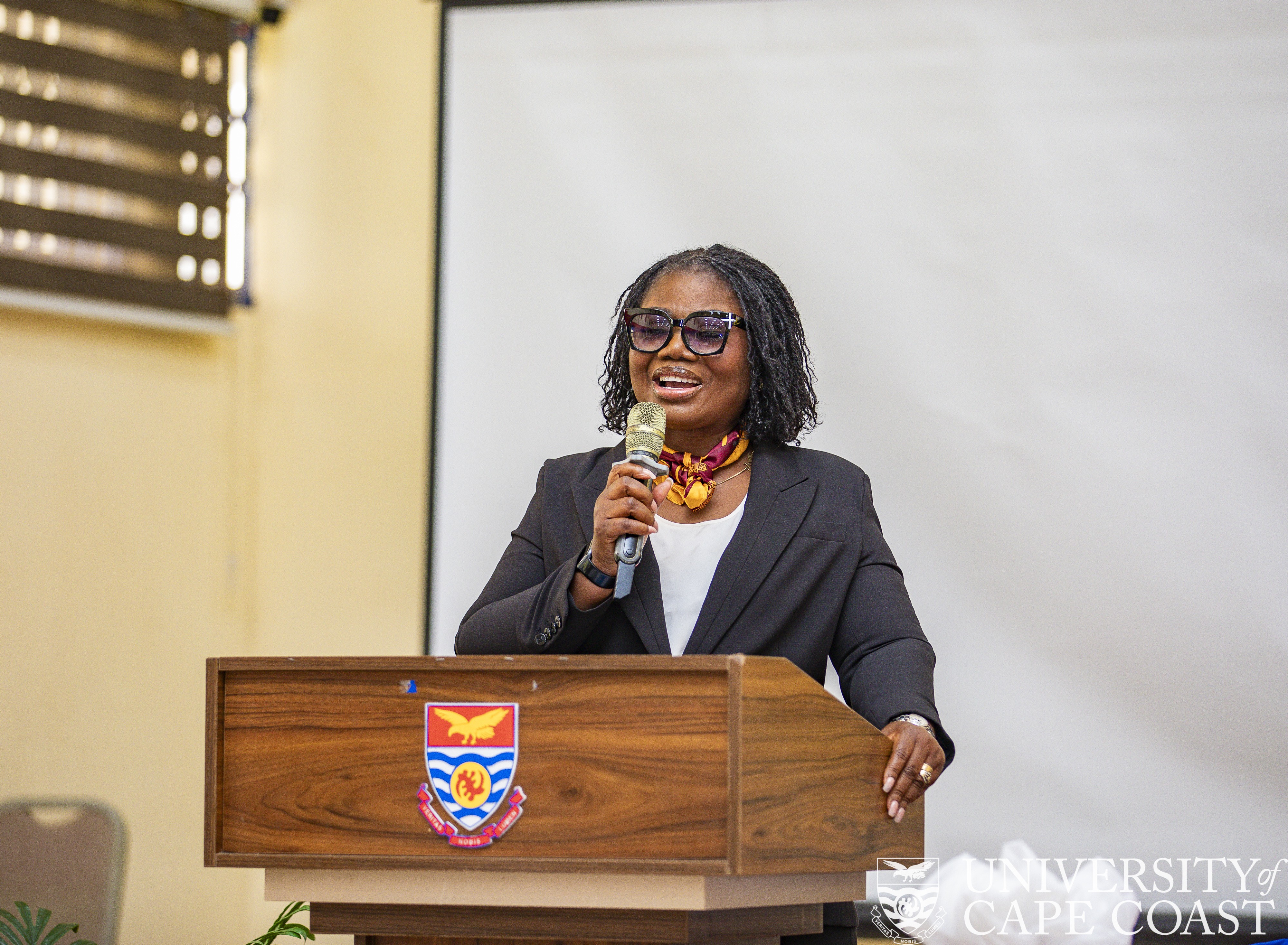The Technical Adviser to the Minister of the Interior, Commissioner of Police (COP) Maame Yaa Tiwaa Addo-Danquah, has stressed the need for massive investment in science to prevent wrongful conviction in the Ghanaian Criminal Justice system.
To that end, she maintained that Forensic Science was the panacea to ensure that innocent people were not wrongfully imprisoned and perpetrators of heinous crimes were rather brought to book to face the full rigors of the law.
“Let us connect Science with Justice. Let us work together and build a system of truth. The era where we depend on hearsay, conversion, faith will not help us as a country,” she added.
COP Addo-Danquah was speaking at the 2nd National Colloquium on Forensic Sciences organized by the Department of Forensic Sciences at the University of Cape Coast (UCC).
It was on the theme: “Forensic Sciences for Sustainable Development, Interrogating the Use of Sciences in the Justice System.”
COP Addo-Danquah, who spoke on the topic: “Bridging the Gap: The Role of Forensic Science in Ghana’s Criminal Justice System – My Insights and Experiences,” called for proper crime scene management to prevent tempering of evidence.
In 2019, she said the Police relied on the conversion of the suspect of the missing Takoradi girls and did not engage in forensic science in the crime scene management to ascertain the evidence.
COP Maame Yaa Tiwaa Addo-Danquah speaking at the event
However, when the Police got in touch with the Department of Forensic Science, the Police were able to visit the crime scene after a year to get forensic evidence at the scene to prosecute the suspect who had been jailed for life.
“If at that time, our Science had developed we would have had very good crime scene management. All these things would not have happened. We would have gotten the evidence at the crime scene on our first visit to the scene,” she added.
COP Addo-Danquah,therefore, called for collaborations amongst institutions to fight crime in the country.
“Through Science, we were able to know that the missing children were rather four and not three. We found four skulls in the septic tank where the suspect buried them. So institutions should not work in silos. In fact, the Department of Forensic sciences helped the police.” she added.
She called on the Police Service to recruit Forensic Science students from UCC so that they could serve the service after graduation.
“I wish the Police Service will come to the Department of Forensic and take some of you as police officers”, she noted.
Speaking virtually, the Head of the Forensic DNA Laboratory, Chief Supt. Dr. Edward Abban, who spoke on the topic Forensic Sciences: Aiming Forward for Sustainable Development, said Forensic Science was contributing immensely towards the SDGs.
According to him, Forensic Sciences was helping in the attainment of goals 5,9, 13 and 16 and expressed sadness that funding was hampering efforts to achieve the aforementioned goals.
A participant asking a question at the event
He called for the award of scholarships to attract more students, forensic science strategies and trust in the forensic process for sustainable development in the country.
Also speaking virtually was Dr. Edward Danso Ansong, from the Department of Computer Science at the Kwame Nkrumah University of Science and Technology.
He spoke on the topic: “ Harnessing emerging technologies in justice: Advancing Digital Forensics, AI, IOT, and Cybersecurity in Modern Criminal Investigations.
The Provost of the College of Agricultural and Natural Sciences, Prof. Rofela Combey, who chaired the event, commended the speakers for their insights and urged the general public to learn more about Forensic Science.
The Head of the Department of Forensic Sciences, Prof. Christian K. Adokoh, said the Department had trained over 200 udnergraduate students who were
Source: Documentation and Information Section



